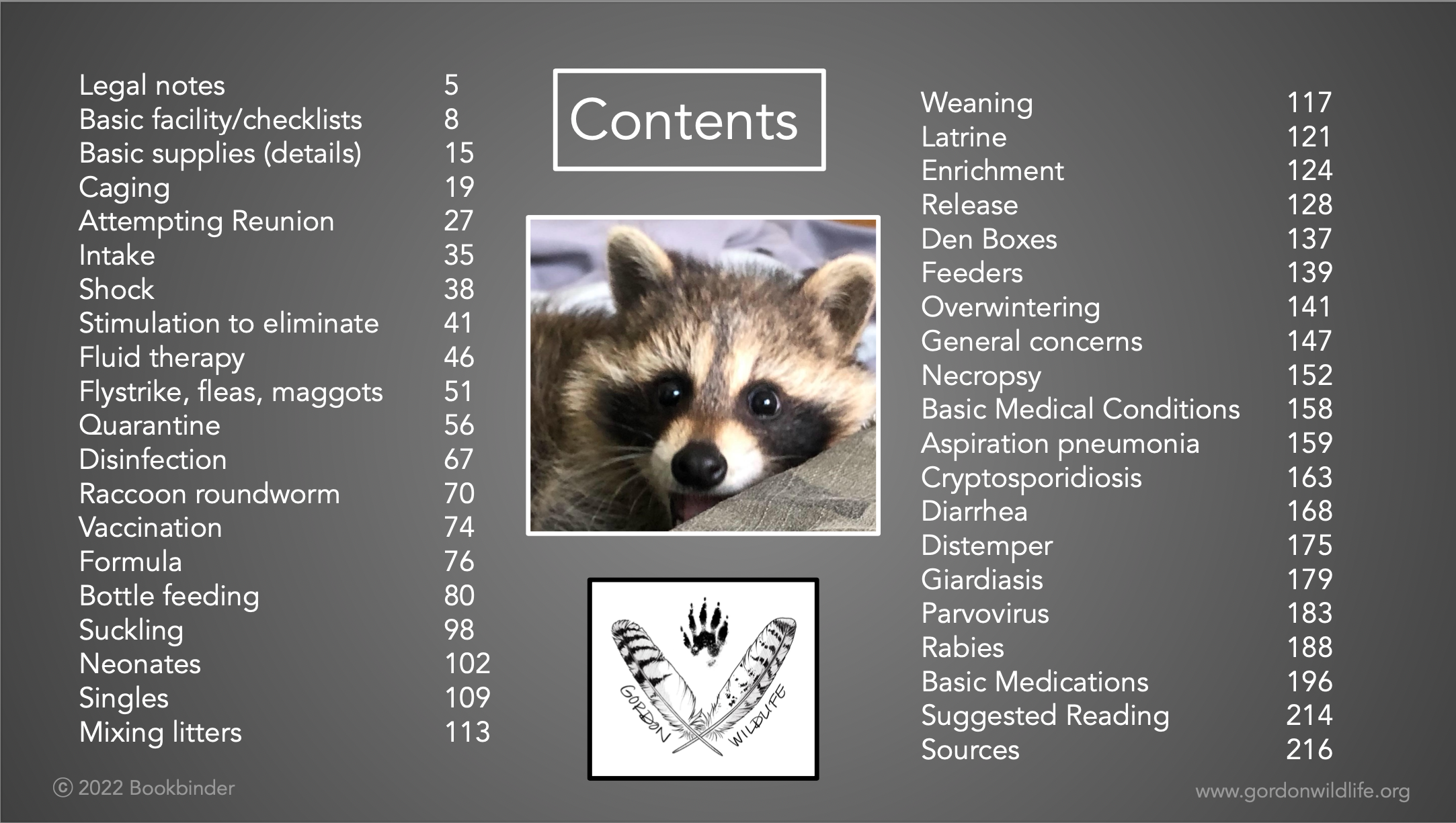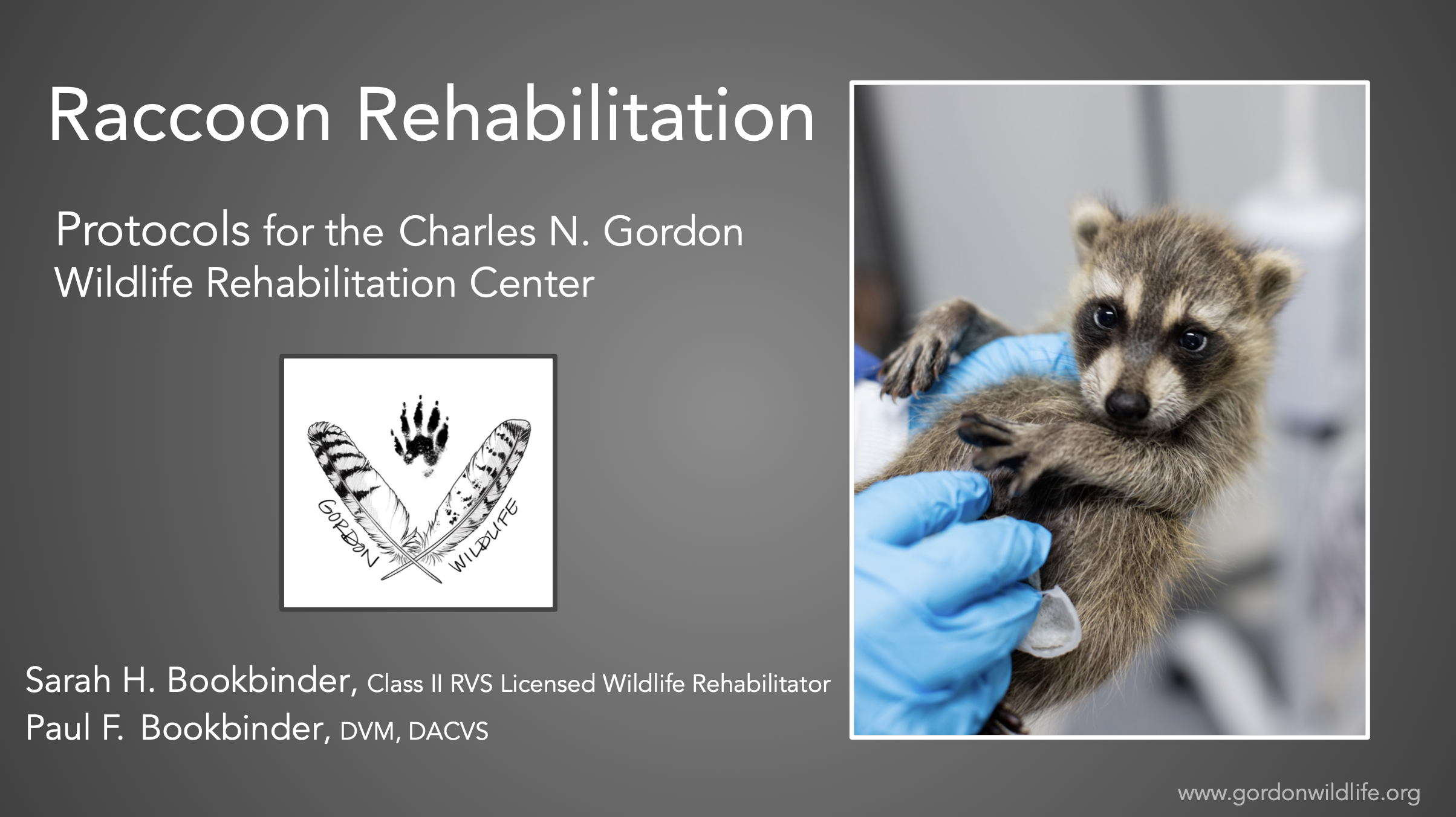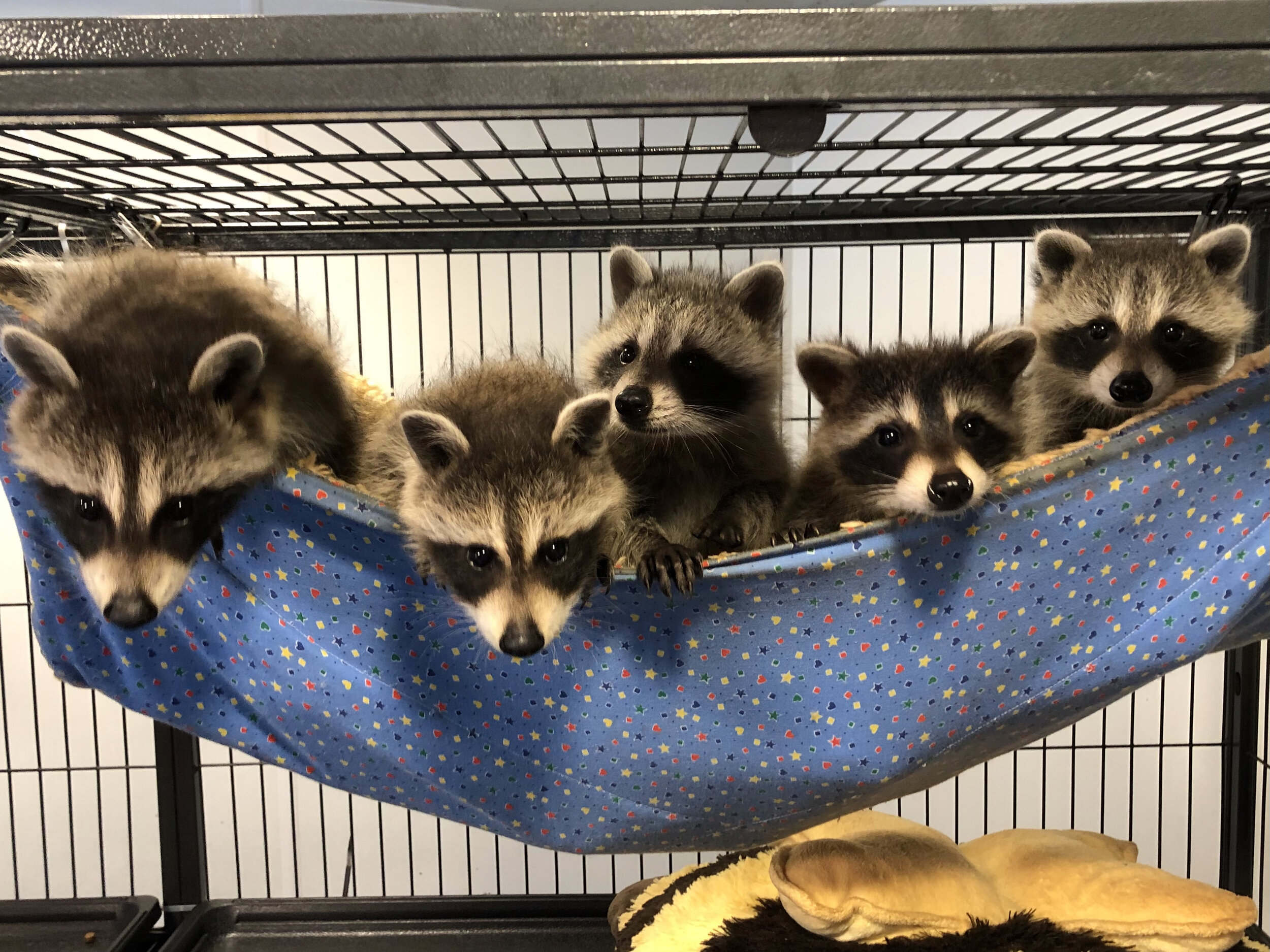Gordon Wildlife's Raccoon Rehabilitation Protocols (download version)
As a Class II RVS licensed raccoon-only specialty center, we get a lot of questions from wildlife rehabilitators dealing with issues relating to raccoons.
We have released a downloadable pdf file which contains over 200 slides illustrating and explaining our in-house medical and rehabilitation protocols. It includes our feeding and housing choices, lists of medications we have found to be effective, and descriptions of our basic practices. This document began as our training manual for volunteers and has been greatly expanded.
Countless hours went into creating this textbook-length file to share. Rather than trying to sell it outright as a book, we have chosen to make it available as a "pay what you can" file. The most important thing to us is getting the information out there and helping more licensed rehabilitators help more raccoons.
Selecting a donation increment from the green boxes will initiate your download. If you can't donate anything at all in exchange for this information, that's ok. Email us directly at sarahbookbinder72@gmail.com and we will send the file to you for free.
If you find that you are in a position to make a donation, any funds generated from this download will go directly towards helping us continue to provide care for raccoons and will help us to sustain our work.
To date, these protocols have been downloaded by wildlife professionals in over 40 states and 10 countries. NOTE: THIS PAGE IS TO ORDER THE DOWNLOAD VERSION ONLY. To order the printed book, click here: https://www.gordonwildlife.org/book


Disclaimer: *** The Charles N. Gordon Wildlife Rehabilitation Center is a raccoon-only, licensed NYS RVS Class II facility. We have a veterinarian on staff who has contributed to the design of our protocols. This document is intended for illustrative and inspirational purposes only and is not meant to be construed as diagnostic/instructional in any way. It is illegal for wildlife rehabilitators to practice veterinary medicine. Do not attempt to rehabilitate or handle wildlife without proper training and licensing. Protocols are subject to change as we learn more. ***

